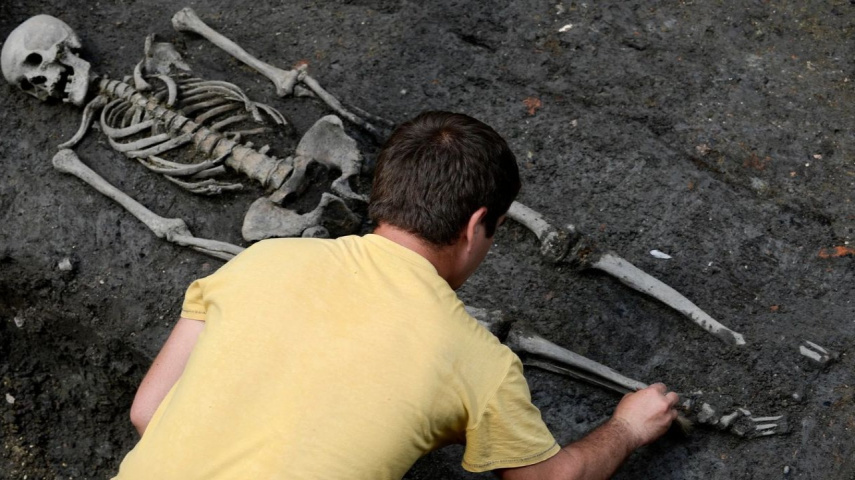Archeologists Discover Medieval Child Buried With Hard-Boiled Egg; Exploring Hidden Truth Behind Mysterious Incident
Discoveries of ancient gravesites with eggs raise questions about their symbolic significance. A recent find in Germany may answer many of these questions.

-
Medieval child's grave was unearthed with a hard-boiled egg atop his bones
-
Eggs found in ancient burials across cultures hold diverse symbolic meanings
Archeologists discovered an amazing site during their work in 2014—the burial place of a medieval child at Erding, Bavaria. Since then, this finding has remained an enigma for scientists (Bavarian State Office for Monument Preservation).
The body buried here belonged to a boy who died when he was about five years old at most. However, what baffles experts is that there was a conscious act by somebody placing a boiled egg on top of small bones.
Historical context
The grave, dating from the seventh century AD, also had belts and weapons characteristic of that era, thus indicating that it could be around 1,300 years old.
This combines artifacts from days gone by to give a glimpse into medieval life and ways. It’s worth noting that this is not new; other cases have involved eggs within such tombs.
Symbolic significance
Eggs have held symbolic importance throughout various cultures and epochs. In addition to human remains, some Italian tombs dating back to the 5th century BC were found with eggs.
Also, in Kukruse, Estonia, two fertilized chicken eggs were recovered from female graves dated the 12th and 13th centuries. As early as 2017, a publication in the Journal of Human Palaeoecology offered numerous interpretations, including those associated with paganism and Christianity.

Cultural interpretations
The Bavarian State Office for Monument Preservation added that the meaning of eggs in ancient burials ranged based on the cultural framework or religious traditions used. For some, they stand for fertility only and represent life circles.
The egg is an essential symbol in Christianity, signifying Easter and Jesus Christ’s resurrection. Conversely, Judaism considers an egg to be a sign of sacrifice and bereavement.
The discovery of the medieval child buried with a hard-boiled egg offers a tantalizing glimpse into ancient customs and beliefs.

Although its significance remains obscure about this particular burial ritual, it reminds us of how rich our human past can be (Stojcevic).
As archaeologists continue to unravel history’s mysteries, these revelations remind us that humans and their practices are shrouded in mystery even when they are long dead.
ALSO READ: Solar Eclipse 2024: Here's When To Watch Much-Awaited Celestial Event In DC Area And More





 JOIN OUR WHATSAPP CHANNEL
JOIN OUR WHATSAPP CHANNEL




































































































